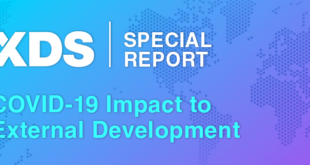The biggest challenge for gaming in India at the moment is getting the government to recognise it as an industry on its own, PlayStation India country manager Atindriya Bose has said.
It’s very important right now to bring together all the segments of gaming in India to present a compelling reason for why this industry should be supported by the government,” Bose told us.
Whoever is taking ownership of gaming as an industry body needs to work on a continuous basis with the government in making it understand that this is not a software-only trade. The ecosystem is much larger and this is a consumer-oriented industry,” he added.
We wrote recently about the need for India to have its own gaming trade body, and how the lack of one meant that gaming would often get clubbed with the IT or animation industries.
While Bose agreed that the idea of an independent body to represent gaming was a good one, being represented through existing trade bodies such as NASSCOM and FICCI also has its advantages.
The pros of a gaming body would be that it would be focussed on gaming, and its chances of being able to achieve its goals would increase as the size of the industry grows. The size of the industry right now, though, is the con part. Given the fragmented nature of the business models in the Indian gaming industry, and the relatively small size of each of these business models, it’s very difficult to get industry status by itself, which would be required to make us more audible to the government. We need that to present our cases more regularly and in a compelling fashion. This is where NASSCOM or FICCI have an upper hand. Through these bodies, you at least get those important meetings where gaming is represented”.
Bose added, however, that even with the clout that NASSCOM and FICCI carry, gaming hasn’t received the push it needs.
There can be a body that is focussed on gaming – which exists in a way under NASSCOM and FICCI – but that body wouldn’t be very helpful if it didn’t have the ability or the clout to get the government to look at gaming as a separate industry. That is currently not happening. The government has to recognise gaming as an industry and an area of opportunity,” he stressed.
He warned, however, that an independent gaming body would not succeed if those running it used it to further their own agendas.
The various segments of this industry cannot be seen as being opportunistic. It shouldn’t be like the console guys want lower duties; developers want subsidies and tax breaks; and mobile companies want better infrastructure at lower costs. There needs to be a proper panel and these cases need to be presented properly and in a balanced manner,” he said.
Console gaming would particularly benefit from a central gaming body. Since many of the key players in this segment are based outside India, a credible authority would help present a much clearer picture of the Indian industry.
The idea of console gaming in India as a segment is very straightjacketed at the moment. But the console segment growing big and having the capacity to make a lot of investment in marketing actually fuels the other parts of the industry. The downside of not having an independent gaming body in India on the console side is that publishers don’t have any data or facts to go on aside from hearsay or what their trade partners or format holders tell them,” Bose said.
One of the major issues stemming from the lack of a central gaming body is the dearth of any credible data or statistics about the Indian gaming industry. Bose also stressed that a gaming body needs to do more to recognise and support content creators.
The different parts of the industry operate differently, so in this situation, getting hard facts and accurate numbers is difficult. Companies that deal directly with consumers are far more open to it, while companies who work on an indirect revenue model may not be as forthcoming. The service industry again presents its own challenges in this regard,” he said.
The challenge right now is to find a way to encompass the longer tail of the development industry, because it is under-represented right now. We need to find a way to represent and support the IP-creating mobile, PC and console developers.”
Sign up for the free MCV India newsletterhere.

 MCV/DEVELOP News, events, research and jobs from the games industry
MCV/DEVELOP News, events, research and jobs from the games industry



